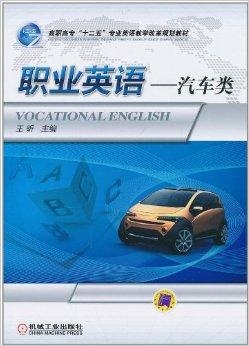本文摘要:本文探讨了汽车的演变,通过英语语言的叙述展现了一场跨越时空的旅程。从早期的汽车设计到现在的智能化汽车技术,展现了汽车产业的飞速发展,同时也反映了社会进步和人们对未来出行的期待。
In the world of transportation, the automobile stands as a symbol of innovation, progress, and convenience. The journey of the automobile is a fascinating narrative that has been etched in the annals of history. Let us delve into the world of automobiles through the lens of the English language.
The word "automobile" is a combination of two words: "auto" and "mobile". The term "auto" originates from the Greek word "autos," which means self or individual, while "mobile" comes from the Latin word "mobili," which means movable or portable. When combined, the term automobile represents a self-propelled, movable vehicle designed for transportation.
The history of the automobile is a story of innovation and invention. The first automobiles were invented in the late 19th century and were initially powered by steam or electricity. As technology progressed, gasoline-powered engines became the norm, and the automobile transformed into a symbol of modernity and progress.
The English language reflects this journey of innovation. The vocabulary related to automobiles has grown exponentially, encompassing terms like "engine," "chassis," "transmission," "suspension," and many more. These words not only describe the technical aspects of automobiles but also reflect the cultural significance of this invention.
The automobile has not only transformed transportation but also influenced other aspects of society. It has revolutionized the way we live, work, and socialize. The rise of automobile culture has given birth to new industries, such as automotive manufacturing, automobile insurance, and automobile racing. The English language has once again played a pivotal role in this transformation, absorbing new terms like "car dealership," "car insurance," and "racecar driver."
Automobiles have also influenced our language in terms of expressions and slang. For instance, the term "car-pooling" refers to the practice of sharing a ride in a car, which has become increasingly popular in urban areas. Similarly, the term "road-trip" reflects the joy of traveling by car, exploring new places, and experiencing the freedom of the open road.
Moreover, the automobile has also influenced our language in terms of language barriers. As people from different cultures and languages come together to share their love for automobiles, the English language acts as a common medium for communication and understanding. This fusion of cultures has led to the emergence of new terms and expressions that reflect the global influence of automobiles.
In conclusion, the automobile is not just a means of transportation but also a symbol of innovation, progress, and cultural transformation. The English language, as a living and evolving entity, reflects this journey of transformation through its vocabulary, expressions, and slang. As we look ahead to the future of automobiles, we can expect the English language to continue evolving, absorbing new terms and expressions that reflect the latest trends and developments in this fascinating field.




 京公网安备11000000000001号
京公网安备11000000000001号 京ICP备11000001号
京ICP备11000001号